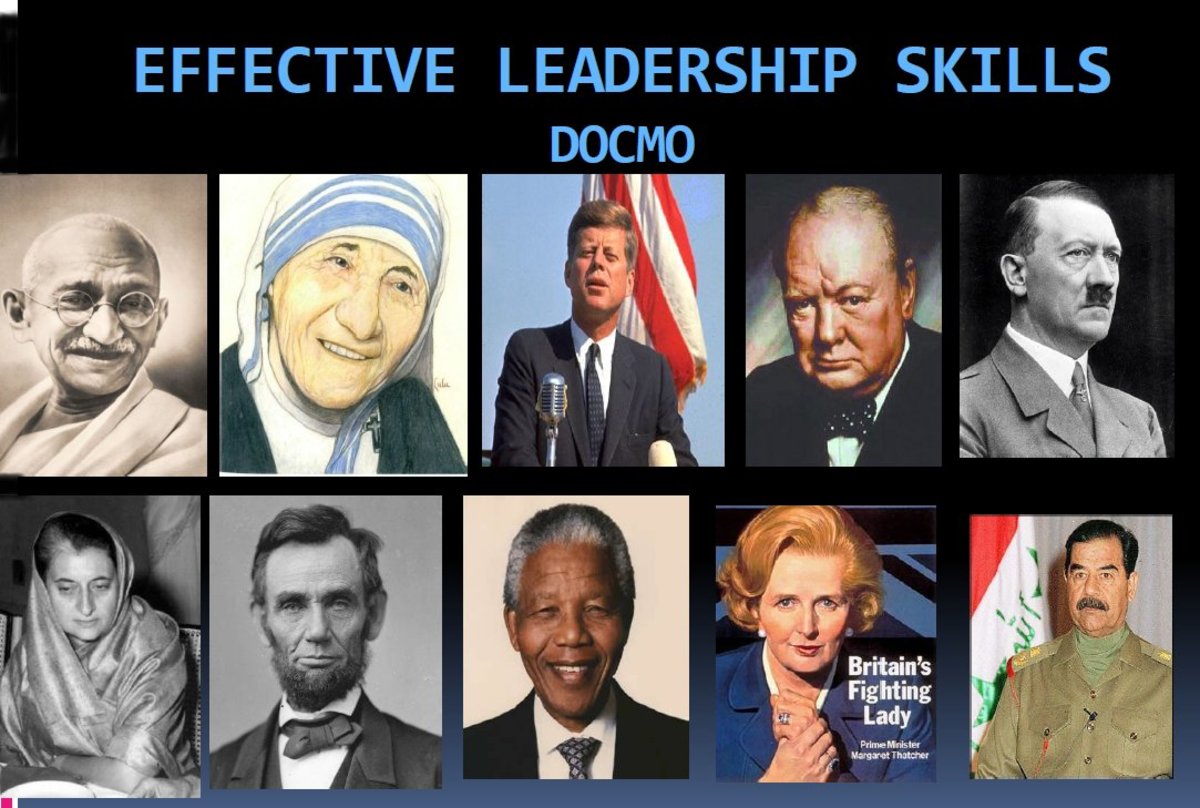Corruption & Sex Scandals: Can Trust of Public Leadership Be Restored?
Thesis Statement
The standard of ethics needs to be raised especially those in governmental and pastoral leadership.
Introduction
Bill Cosby, Matt Lauer, Harvey Weinstein, Kevin Spacey and Tom Brokaw have all been charged with sexual misconduct of some sort or another. Political leaders have also been accused of similar deplorable behavior. As a result, some professionals have resigned, others have faced trial by jury and most found guilty. But what about corruption by those pastoring faith-based institutions? Should we hold them to a higher standard of ethics?
Public Officials and Faith-Based Scandals
Scandals in faith-based institutions have shattered our trust. Pastors, priests, youth leaders, and teachers have been tried for the abuse of minors, as well as lying, cheating and defrauding their organization. We hold elected officials to a high standard of ethics. Americans hold those in pastoral leadership to an even higher standard.
Ethics are important for public officials, whether elected or non-elected. There is a need to apply a higher standard for those in pastoral leadership of faith-based institutions.
Can You Legislate Morality?
Some argue that you can’t legislate morality. However, we pass laws against stealing, prostitution and lying under oath and all of these have a moral and ethical component to them.
Research that supports regulating corruption is important. Evidence suggests that a lack of morals and ethics results in a violation of dignity and trust between the perpetrator and the victim. Moreover, the incidence of scandal is increasing in government and faith-based institutions.
Policies in the Church Setting
The Catholic Church currently seeks to be pro-active rather than reactive regarding two significant moral and ethical issues: (1) The protection of children and (2) Maintaining financial integrity. Local dioceses are implementing programs that increase the protective measures of children. Bishops are calling for greater accountability, transparency and internal control measures.
Research Articles
6 journal articles that address corruption and scandals are evaluated in this study. Critical assessments, including biases and strengths and weaknesses are presented. Recommendations to a local faith-based institution are provided.
Article 1: Democracy and Deceit: Regulating Appearances of Corruption
Warren (2006) shows the need and appropriateness of regulating the appearance of impropriety in government. It is a descriptive study, using case example for support. There is a lack of defined independent and dependent variables but the need for regulation depends on public trust. Democracy depends upon the integrity of appearances.
Warren is the Professor for the Study of Democracy at the University of Columbia. His research appears in peer reviewed journals. However, he over emphasizes democracy as the preferred form of government and seems to de-emphasize the fact that the United States is a Republic. His study does not use scientific methodology to define dependent and independent variables and provide evidence of its reliability and validity. The audience includes regulators and citizens.
Support for the thesis is evident in his statements about public trust and the need for regulation. He supports the notion of more recent interest in this topic since Watergate and the appropriateness of regulating corruption. He also notes the declining trust of the public since the 1960s.
Article 2: Government Finance Officers Association Code of Professional Ethics: Anchor in a Sea of Change
Recent corporate scandals have called for a greater adherence to the Code of Ethics formulated by the Government Finance Officers Association (GFOA). Johnson calls for the GFOA to raise the standard for public financial officers and to uphold the spirit and letter of the law. The target audience is finance professionals. It is a descriptive report, tracing events and codes from 1938 through the 1990s. The author admits the results will vary due to differing interpretations of the code.
A weakness of this report is the lack of additional case studies that could have been used to support the call for a greater ethical standard. The strength of this report is that it is highly applicable to a number of scandalous current events that have sprang upon the scene. The fact that the author is a board member of the GFOA is both a bias and yet sign of expertise. Despite the weaknesses and bias, the author articulates the call for a higher standard of professional behavior and therefore supports the thesis.
Article 3: The Importance of Trusted Leaders: Are You a Trusted Leader?
The central research question is, "How do government leaders earn trust?" The target audience are government leaders. The author suggests leaders should get out of the office and communicate with their people. The methodology is largely descriptive with few case examples. It included interviews of panelists who have extensive experience. They include directors, auditors and a Supreme Court Marshal.
The strength of this report is that it brought together a number of leaders who shared their experiences for establishing and maintaining trust of their employees. A weakness is that this is not a scientific study, lacking clear dependent and independent variables. The author's expertise includes being a long-time member of the board of directors of the Federal Executive Institute Alumni Association (FEIAA) and editor of the FEIAA's monthly newsletter. He retired from the U.S. Office of Personnel Management in 2003. The author is a member of the organization that was studied and might be considered a bias. Support for the thesis includes the citing of the poll that shows public trust in government \has been declining in the last 30 years. There is a need for leadership to build relationships that make government work more effectively.
Article 4: Ethical Leadership and the Public Trust
The author suggests four characteristics that must be present in leaders: honesty, forward-looking, competent, and inspiring. The research methodology is descriptive with few case examples. The results show the need for leaders to look into what followers pursue in a leader whether they are at the corporate, political or community level.
A strength of this report is that it looks to the people for solutions. A weakness is that it was not a very long or in-depth study, lacking dependent and independent variables. The amount of trust placed in a leader is dependent upon their ability to look to the followers interests and offer them hope. The expertise of the author includes being a graduate assistant at the Arkansas Public Administration Consortium Institute of Government, University of Arkansas at Little Rock. Her winning essay, in memory of Wally O. Keene, was selected by a panel of members comprised of the American Society of Public Administration as well as board members of The Public Manager magazine. A bias is that the author is a member of the target audience. The author demonstrates the need for trust building whether you are a public or private leader.
Article 5: What Kind of International Public Service Do We Need for the Twenty-first Century?
The author calls for reform in international civil service. This includes a return to the high ethical standards it once held: accountability, transparency, fairness and managerial excellence. The methodology is largely descriptive with a few case examples provided. International business models are discussed but the author calls for further exploration of them. He proposes 5 objectives in order to obtain or produce an efficient, competent, integrity-based, effective international public service. These proposals were imposed upon the UN secretary-general and we have yet to see the results.
The strength of this study is the valid, common sense proposals made by the author. The main weakness is that the proposals were not measured for outcomes. The expertise of the author includes being a professor of international relations at the Maxwell School of Citizenship and Public Affairs at Syracuse University. He was a career staff member of the United Nations Secretariat from 1971–1997 and since has consulted widely with organizations of the United Nations system in results-based management. A bias is that principles of public administration at the UN level are based on ideologies that differ from public administration in the US. A call for greater integrity goes beyond traditional US public administration settings and should be embraced locally, abroad and by faith-based institutions.
Article 6: Understanding and Maintaining Ethical Values in the Public Sector Through an Integrated Approach to Leadership
The author explores transactional and transformational approaches of ethical public-sector leadership. The methodology is descriptive with a few case examples. There are no defined dependent or independent variables. The author cites a number of relevant cases, increasing the validity of the results. The author is convinced that public leaders are expected to conform to a higher set of standards than those of their own personal morality.
The strength of this article is that it addresses the need to raise the standard of ethics at both the national and international level. An adequate number of case examples supported the need for a higher standards of ethics. The author also focuses on personal moral development. A weakness of the article is that the terms transactional and transformational leadership were only loosely defined. Otherwise, the article shows a need to increase awareness of ethical matters and raise the standard for both national and international public administrators.
4 Common Themes
The research articles clearly show the deterioration and decline of ethics and morals due to scandals and lapse of good judgment in our country and even across the globe.
- Morals and ethics have been decreasing at home and abroad within private and public sectors.
- Public outcry for a higher standard of ethics and morals has been on the increase.
- There is a need for a greater degree of ethics, accountability, responsibility, integrity and morals in public administration.
- Each author calls for adopting regulations, principles or codes at the national or international level in order to raise the standard of ethics across several venues from finance to international public service.
Adopting these principles will foster the development of internal control measures, promote greater accountability, and enhance transparency when addressing sexual abuse of minors. The principles can also be applied to maintaining financial integrity.
Case Example: Protecting Children in the Catholic Church
Saints John and Paul Catholic Church (SSJP) is located in Altoona, Iowa. The SSJP mission statement is: “Called together by our common baptism, Saints John and Paul Parish strives to live the good news of Jesus by celebrating the Eucharist and all the sacraments. Committed to life-long learning we share Christ with others by living our faith and reaching out in love.”
The church has approximately 900 registered members or families. The average age of its members is about thirty. Many infant baptisms are celebrated.
Parish priests are under the obedience of the Diocesan Bishop. As pastor, he is ultimately responsible for the many ways an organization shares faith and reaches out in love. There are five other full time staff members. Reporting relationships are being developed and defined. Six individuals report directly to the pastor.
Church Organization Culture
The organizational culture is rather unique when compared to both private and public agencies. For example, the level of respect and expectations of work performance increases when your immediate supervisor is also an ordained minister.
Faith Formation Sessions
There are three monthly sessions of intergenerational faith formation. Entire families are formed in their faith at the same time. Age appropriate breakout sessions are conducted.
Committees
There are a number of committees and faith groups that meet regularly. They include a Pastoral Council, Finance Council, Saint Vincent De Paul Council, Interfaith Hospitality Network, Habitat for Humanity, and various fundraising committees.
Seasonal Projects
During Thanksgiving and Christmas, the parish begins a project called, “Angel Tree." Members pick an angel on a Christmas tree in the gathering space with a name of a family written on it. These are children whose parents are incarcerated during Christmas time and are in need of gifts, usually clothing or something practical and a game to bring them joy.
The parish celebrates, "Mardis Gras," or “Fat Tuesday,” the last day for Catholics to eat, drink and be merry before Lent begins on Ash Wednesday. During Lent, there is a mass on Tuesday nights followed by a simple soup supper. During this time parish retreats are held. Members gather for a weekend prayer experience full of faith-filled surprises designed to draw people closer to Christ. These experiences are also designed to animate people to share their renewed sense of faith to others through future fellowship and participation in parish activities.
Money Handling Controls
The annual budget for SSJP is about $600,000. The primary source of income comes from the offertory collection during masses or worship services. Ushers pass the basket and transfer the tithes to a larger basket that is brought to the altar. The monies are brought to a secured room for counting. The parish has recently seen the need to adopt greater control measures for mass collections and counting. The Diocese provided guidelines to the area parishes in an effort to strengthen accountability, transparency and internal control measures in the Financial Management and Control Manual. A collection procedure for the parish ushers and money counters has been established.
Accountability for Children
Additionally, many church events involve a number of staff and volunteers who work closely with children. In an effort to ensure the safety of children, the Diocese has implemented a Protecting God’s Children program known as VIRTUS (Available at Virtus.org). As part of the VIRTUS requirements, the Code of Conduct must be reviewed and acknowledged.

Recommendations
The Diocese of Des Moines and other churches see the need to be proactive rather than reactive when it comes to anticipating and addressing issues related to integrity. It is recommended that pastors and staff members take the VIRTUS program serious and make every effort to sustain it. Leadership needs to continue to find ways to raise the standard for accountability, transparency and internal control measures.
Compliance with Programs
Catholic churches should consider strengthening two areas. First, churches need to make sure that they are always ready to pass an on-site compliance evaluation spot-check following the guidelines set forth in the Protecting God's Children program. Secondly, internal control measures for the collection and processing of monies need to be strengthened.
Protecting God’s Children
Current standards require that anyone who has three hours per month of contact with children must attend the VIRTUS training program as well as submit to and pass a background check. SSJP employees have already met the requirements including ongoing on-line training sessions. The parish is responsible for identifying individuals whether employees or volunteers who need training and background checks. The Business Manager provides notice that they need to have the training and fill out the necessary forms. The Diocese asks that this information is reviewed every quarter.
Churches need to be very strict about interpreting the minimum threshold for requiring the training, that is if an individual has three hours per month contact with children, they should be trained. Churches might even consider lowering the threshold to one hour per month so as to include Sunday school teachers and be required to have a background check and VIRTUS training. Vacation bible school (VBS) volunteers should also be checked and trained.
Internal Control Measures for Money Handling
One of the ways to strengthen internal control measures is to segregate duties for money collection and deposit procedure. There needs to be at least two persons involved in filling out deposit slips, making the deposit, recording the transaction in our software program and conducting bank reconciliation.
In 2009, SSJP had an audit that identified a control deficiency, recommending that another person be involved in the process. The ideal candidate is someone with an accounting background, respectful of sensitive and confidential information, is computer proficient and regularly available.Another volunteer was added in the process. This person alternates duties of money handling with the Business Manager in order to meet the internal control measure. A disadvantage is the time and money needed to recruit and hire the individual. . Yet this is offset by the potential cost and risks by not hiring someone such as a breach in the process resulting in hundreds if not thousands of dollars being potentially misappropriated.
Software Programs with Fail-Safe Measures
Another step the Diocese already has in place is the mandated Church Management System (CMS) software program. It is required to be used by all parishes in the diocese. It is specifically designed to handle cash basis accounting as it relates to church activities. It has over ten thousand codes on the chart of accounts. Hiring a person with an associate’s degree or higher in accounting is recommended. A disadvantage might be that hiring someone with an advanced degree would be more costly. An advantage would be that the work could be done accurately and efficiently. Another advantage of paying a competitive wage would be that the person should feel a sense of worth which could translate into loyalty and dependability for the church.
Conclusion
Applying these recommendations throughout government and faith-based institutions are helpful in restoring trust and maintaining a safe environment for those considered most vulnerable and innocent.
References
Erickson, Amanda L. (2006). Ethical Leadership and the Public Trust. The Public Manager. The Bureaucrat INC. Cengage Learning.
Johnson, Eric R. (2002). GFOA Code of Professional Ethics: Anchor in a Sea of Change. Government Finance Review. Cengage Learning.
Mathiason, John. (2008). What Kind of International Public Service Do We Need for the Twenty-first Century? Global Governance, Vol. 14. Pp. 127-133.
McDougle, Lindsey M. (2007). Understanding and Maintaining Ethical Values in the Public Sector Through an Integrated Approach to Leadership. “Leading the Future of the Public Sector”—The Third Transatlantic Dialogue. May 31–June 2, 2007 · University of Delaware · Newark, Delaware USA
Pettibone, Craig (2008). The Importance of Trusted Leaders: Are You a Trusted Leader? Do You Trust the Leaders for Whom You Work? The Public Manager. Cengage Learning.
Warren, Mark E. (2006). Democracy and Deceit: Regulating Appearances of Corruption. American Journal of Political Science, Vol. 50, No. 1, Pp. 160–174
The National Catholic Risk Retention Group, INC. Virtus Online. http://www.virtus.org/virtus/preview_pgc.cfm
Report of Bishop Roger Morin, Chairman Subcommittee on Catholic Campaign for Human Development on CCHD and ACORN November 11, 2008. Retrieved from: http://www.usccb.org/_cs_upload/7743_1.pdf








